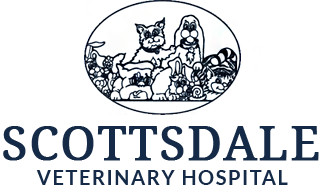
Our pet’s nutrition, just like our own, is a fundamental component for a healthy life. There is much debate on which diet is best, which ingredients are acceptable, and what form is superior to the other. Raw versus commercial versus home cooked, ‘all natural’ versus grain free versus ‘no by-products’. What do these actually mean in regards to pet food? Are the claims made by pet food companies able to be substantiated as fact?
In Canada there are no regulatory bodies overseeing the pet food industry. In the US, the National Research Council provides nutrient recommendations for dogs and cats based on current science and data. The Association of American Feed Control Officials (AAFCO) oversees the regulations of nutrient guidelines of which pet food companies are mandated to adhere to. However, adhering to nutrient profiles alone does not equate to proper nutrition in every animal. There are no regulatory bodies overseeing what pet food companies term as ‘holistic’, ‘all natural’, ‘human grade’ and so on. There is no one to substantiate these claims.
The American Animal Hospital Association has outlined nutritional assessment guidelines for dogs and cats. They also compiled a list of questions for pet food companies to help determine how reputable and trustworthy they likely are in regards to our pets’ nutrition. These guidelines have also been accepted by the World Small Animal Veterinary Association, the American Association of Feline Practitioners, and the Canadian Veterinary Medical Association.
Proper nutrition is not just feeding a balanced trusted diet. There are many factors that need to be taken into consideration. That is why your veterinarian and the team of animal health professionals you entrust your pets’ care with are the best source for this information. A diet recommendation is not about selling food. Nutritional consultation is about ensuring your pet receives an individualized take on what diet would best suit the conditions and lifestyle of the individual. Whether it is to support an active growing dog, the senior years of a feline friend, weight loss, a skin condition, dental health, gastrointestinal issues, or kidney disease for instance, we can help choose the right diet for your friend. Proper adequate nutrition leads to healthier happier canine and feline companions.
For more information check out:
www.aahanet.org/Library/NutritionalAsmt.aspx
www.petfoodnutrition.com/nutrition/choosing-the-right-food/
www.fda.gov/AnimalVeterinary/ResourcesforYou/AnimalHealthLiteracy/ucm278130.htm
